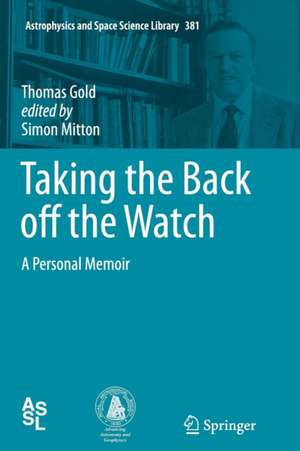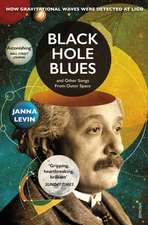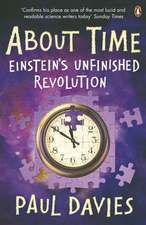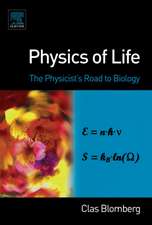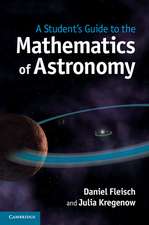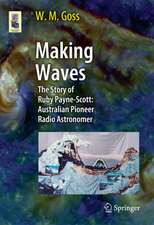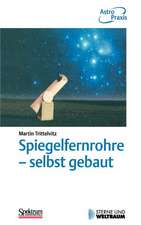Taking the Back off the Watch: A Personal Memoir: Astrophysics and Space Science Library, cartea 381
Autor Thomas Gold Editat de Simon Mittonen Limba Engleză Paperback – 11 iun 2014
The book is a retrospective on Gold’s remarkable life. He fled from Vienna in 1933, eventually settling in England and completing an engineering degree at Trinity College in Cambridge. During the war, he worked on naval radar research alongside Fred Hoyle and Hermann Bondi – which, in an unlikely chain of events, eventually led to his working with them on steady-state cosmology. In 1968, shortly after their discovery, he provided the explanation of pulsars as rotating neutron stars.
In his final position at Cornell, he and his colleagues persuaded the US Defense Department to fund theconversion of the giant radio telescope at Arecibo in Puerto Rico into a superb instrument for radio astronomy. Gold’s interests covered physiology, astronomy, cosmology, geophysics, and engineering.
Written in an intriguing style and with an equally intriguing foreword by Freeman Dyson, this book constitutes an important historical document, made accessible to all those interested in the history of science.
| Toate formatele și edițiile | Preț | Express |
|---|---|---|
| Paperback (1) | 556.90 lei 38-44 zile | |
| Springer Berlin, Heidelberg – 11 iun 2014 | 556.90 lei 38-44 zile | |
| Hardback (1) | 644.49 lei 6-8 săpt. | |
| Springer Berlin, Heidelberg – 24 mai 2012 | 644.49 lei 6-8 săpt. |
Din seria Astrophysics and Space Science Library
- 24%
 Preț: 799.10 lei
Preț: 799.10 lei - 15%
 Preț: 647.92 lei
Preț: 647.92 lei - 18%
 Preț: 983.81 lei
Preț: 983.81 lei - 18%
 Preț: 790.28 lei
Preț: 790.28 lei -
 Preț: 359.86 lei
Preț: 359.86 lei -
 Preț: 389.71 lei
Preț: 389.71 lei - 20%
 Preț: 691.14 lei
Preț: 691.14 lei - 20%
 Preț: 816.18 lei
Preț: 816.18 lei - 18%
 Preț: 1011.27 lei
Preț: 1011.27 lei -
 Preț: 402.56 lei
Preț: 402.56 lei - 15%
 Preț: 664.93 lei
Preț: 664.93 lei -
 Preț: 398.15 lei
Preț: 398.15 lei - 18%
 Preț: 954.77 lei
Preț: 954.77 lei -
 Preț: 411.04 lei
Preț: 411.04 lei - 18%
 Preț: 1225.31 lei
Preț: 1225.31 lei - 18%
 Preț: 1843.29 lei
Preț: 1843.29 lei -
 Preț: 393.13 lei
Preț: 393.13 lei -
 Preț: 400.26 lei
Preț: 400.26 lei - 18%
 Preț: 953.82 lei
Preț: 953.82 lei - 18%
 Preț: 960.61 lei
Preț: 960.61 lei -
 Preț: 398.35 lei
Preț: 398.35 lei -
 Preț: 390.84 lei
Preț: 390.84 lei -
 Preț: 413.76 lei
Preț: 413.76 lei -
 Preț: 416.64 lei
Preț: 416.64 lei - 18%
 Preț: 947.67 lei
Preț: 947.67 lei -
 Preț: 404.51 lei
Preț: 404.51 lei - 18%
 Preț: 956.50 lei
Preț: 956.50 lei -
 Preț: 403.75 lei
Preț: 403.75 lei - 18%
 Preț: 1229.40 lei
Preț: 1229.40 lei - 18%
 Preț: 1224.99 lei
Preț: 1224.99 lei -
 Preț: 404.29 lei
Preț: 404.29 lei - 15%
 Preț: 654.77 lei
Preț: 654.77 lei - 18%
 Preț: 1248.20 lei
Preț: 1248.20 lei - 18%
 Preț: 955.25 lei
Preț: 955.25 lei - 18%
 Preț: 1846.28 lei
Preț: 1846.28 lei - 18%
 Preț: 1233.06 lei
Preț: 1233.06 lei - 18%
 Preț: 1234.77 lei
Preț: 1234.77 lei
Preț: 556.90 lei
Preț vechi: 696.13 lei
-20% Nou
Puncte Express: 835
Preț estimativ în valută:
106.58€ • 110.86$ • 87.98£
106.58€ • 110.86$ • 87.98£
Carte tipărită la comandă
Livrare economică 11-17 aprilie
Preluare comenzi: 021 569.72.76
Specificații
ISBN-13: 9783642432460
ISBN-10: 3642432468
Pagini: 252
Ilustrații: XVIII, 234 p.
Dimensiuni: 155 x 235 x 13 mm
Greutate: 0.36 kg
Ediția:2012
Editura: Springer Berlin, Heidelberg
Colecția Springer
Seria Astrophysics and Space Science Library
Locul publicării:Berlin, Heidelberg, Germany
ISBN-10: 3642432468
Pagini: 252
Ilustrații: XVIII, 234 p.
Dimensiuni: 155 x 235 x 13 mm
Greutate: 0.36 kg
Ediția:2012
Editura: Springer Berlin, Heidelberg
Colecția Springer
Seria Astrophysics and Space Science Library
Locul publicării:Berlin, Heidelberg, Germany
Public țintă
ResearchCuprins
Foreword by Freeman Dyson.- Introduction by Simon Mitton.- School Years in Troubled Times.- Wartime Student Days.- Wartime Work for the British Navy.- Return to Cambridge: The Citadel of Learning.- Appointment at the Royal Greenwich Observatory.- Move to America.- Move to Cornell.- The Pulsar Era.- NASA: The Love-Hate Relationship.- The origin of Petroleum on Earth.- Earthquakes.-Unfinished Business.
Recenzii
“Gold discusses cosmology in three relatively brief sections of Taking the Back Off the Watch: A Personal Memoir. … Taking the Back Off the Watch is likely to prove a useful source for historians of science of the post-World War II period.” (Robert W. Smith, ISIS, Vol. 106 (2), June, 2015)
Textul de pe ultima copertă
Thomas Gold (1920-2004) had a curious mind that liked to solve problems. He was one of the most remarkable astrophysicists in the second half of the twentieth century, and he attracted controversy throughout his career. Based on a full-length autobiography left behind by Thomas Gold, this book was edited by the astrophysicist and historian of science, Simon Mitton (University of Cambridge).
The book is a retrospective on Gold’s remarkable life. He fled from Vienna in 1933, eventually settling in England and completing an engineering degree at Trinity College in Cambridge. During the war, he worked on naval radar research alongside Fred Hoyle and Hermann Bondi – which, in an unlikely chain of events, eventually led to his working with them on steady-state cosmology. In 1968, shortly after their discovery, he provided the explanation of pulsars as rotating neutron stars.
In his final position at Cornell, he and his colleagues persuaded the US Defense Department to fund theconversion of the giant radio telescope at Arecibo in Puerto Rico into a superb instrument for radio astronomy. Gold’s interests covered physiology, astronomy, cosmology, geophysics, and engineering.
Written in an intriguing style and with an equally intriguing foreword by Freeman Dyson, this book constitutes an important historical document, made accessible to all those interested in the history of science.
The book is a retrospective on Gold’s remarkable life. He fled from Vienna in 1933, eventually settling in England and completing an engineering degree at Trinity College in Cambridge. During the war, he worked on naval radar research alongside Fred Hoyle and Hermann Bondi – which, in an unlikely chain of events, eventually led to his working with them on steady-state cosmology. In 1968, shortly after their discovery, he provided the explanation of pulsars as rotating neutron stars.
In his final position at Cornell, he and his colleagues persuaded the US Defense Department to fund theconversion of the giant radio telescope at Arecibo in Puerto Rico into a superb instrument for radio astronomy. Gold’s interests covered physiology, astronomy, cosmology, geophysics, and engineering.
Written in an intriguing style and with an equally intriguing foreword by Freeman Dyson, this book constitutes an important historical document, made accessible to all those interested in the history of science.
Caracteristici
Enthralling life story of one of the most remarkable astrophysicists of the second half of the twentieth century who explained pulsars as rotating neutron stars With intriguing anecdotes revealing Gold’s scientific curiosity and deep understanding of physics Carefully edited by the author of the biography of Sir Fred Hoyle With a Foreword by Freeman Dyson Published under the auspices of the Royal Astronomical Society Illustrated with photographs, many never previously published Includes supplementary material: sn.pub/extras
